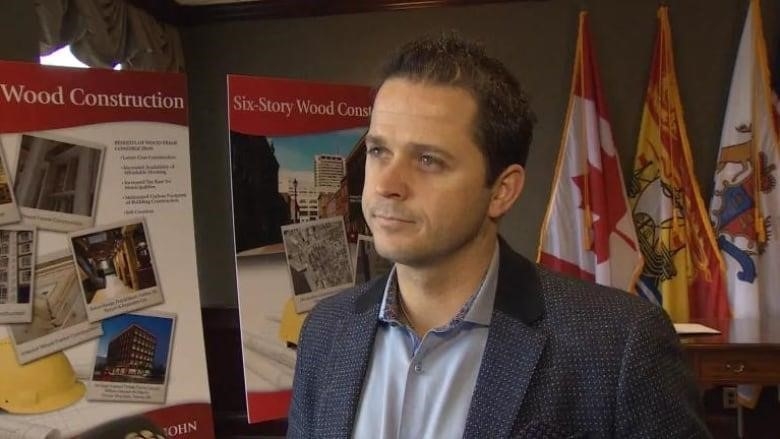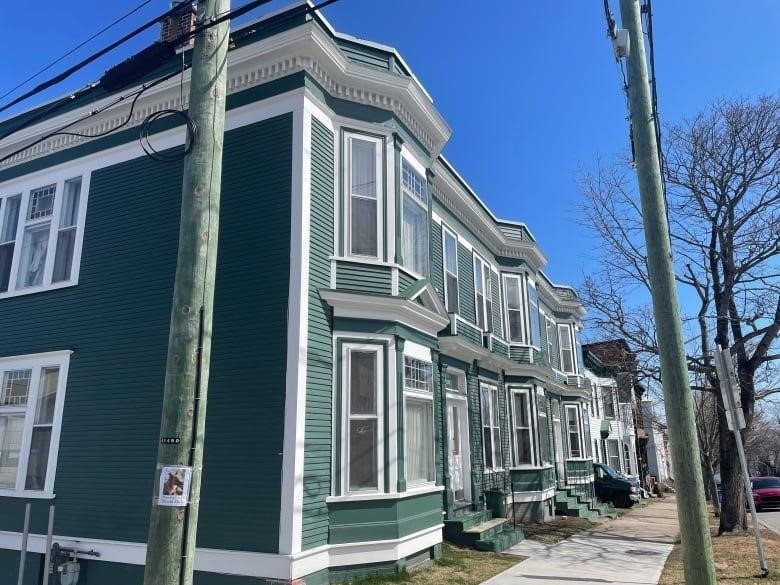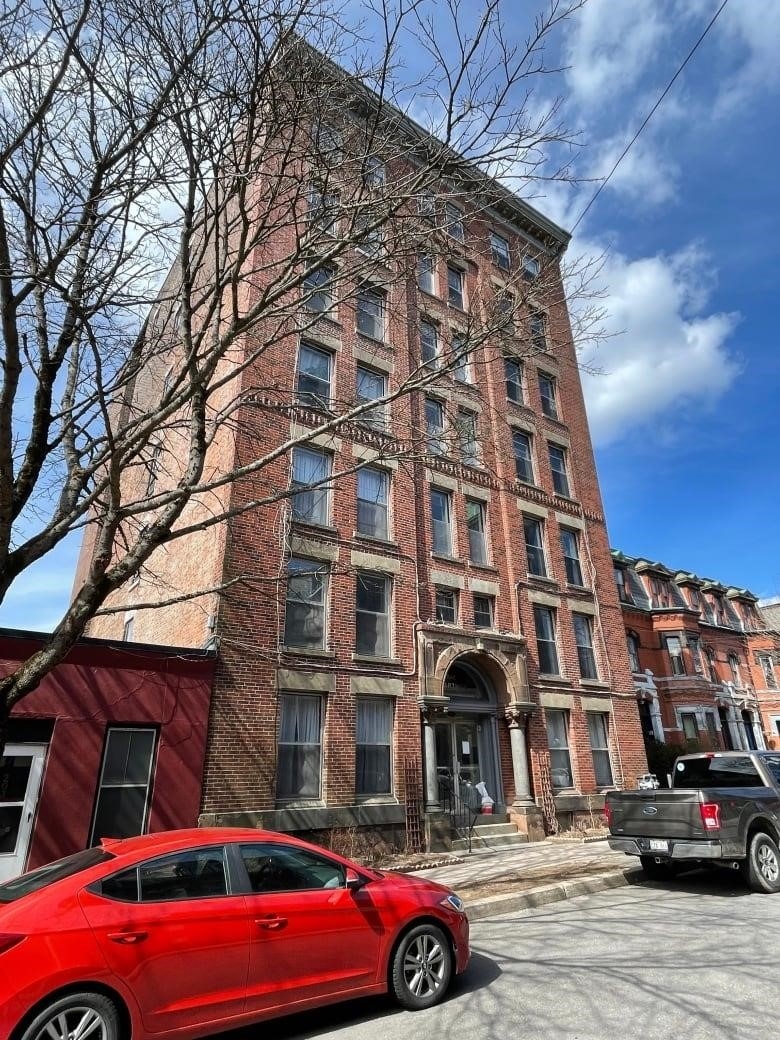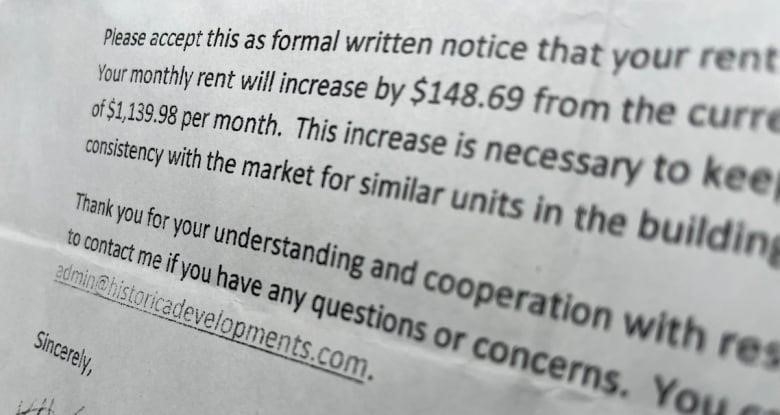
Historica bought several buildings in 2020 and told the people who lived there that they didn’t “have to worry” about big rent increases
Dick Parker is 79.
His wife and he have lived in the same apartment building in uptown Saint John for 21 years.
The landlord told them that the rent would go up by 15% in October. This was two weeks ago.
Parker said of the increase, “You know, the amounts are damn close to $150 a month.”
“I think it’s totally crazy.”

Historica Six GP Inc. and Historica Six Limited Partnership bought 150 apartments in 2020, including Parker’s apartment building.
Historica is one of the biggest landlords in the city. In the past few days, up to 75 tenants in some of the buildings that were sold have received similar notices.
Kristina Hobson lives in the McArthur building on Germain Street. It has seven stories. Her notice is also for a 15% increase, and she said that every long-term tenant in the building got the same letter.
“I thought a 15% rise was a pretty big change,” Hobson said.
“Our building reacted pretty strongly. A lot of people have lived in the building for a long time, and a lot of them are older, so there are a lot of fixed incomes.”
When Keith Brideau, the president of Historica, bought the properties 30 months ago, he did not tell the long-term renters to expect that.

At the time, he said in a number of interviews that the people who lived in those buildings didn’t need to worry that he would raise their rents a lot.
Brideau said in an interview that the renters he was taking over after the sale didn’t have to worry about it.Details Good morning, Saint John at the time.
“The north end is where I grew up. I know from experience that people find it hard to pay $1,200 or $1,500 a month. But at the same time, the people who can’t afford it should have a nice place to live. We’re looking forward to taking better care of people who spend between $500 and $1,000.”
Last year, tenants in the affected buildings in New Brunswick were protected by a hard rent cap, and Historica charged them 3.8% rent increases.
This year, those caps have been taken away. That means that people who have been renting since the sale will pay about 19% more in October than they did in 2020 if the new 15% increase goes through.
Since the sale, inflation in New Brunswick has been a little more than 12%.
Brideau said in an interview on Tuesday that he is going to have to pay more for things like repairs, heat, insurance, labor, and paying off debt.
He said, “We are not safe from inflation.”

Brideau says that all of his tenants who have lived in one of his buildings for more than a year have been given notices of some kind of October rent increase. He estimates that between 50 and 75 of those notices were for the full 15%.
He said that those people are paying rents that are “significantly” less than what the market rents are now, and he said that what he is proposing now doesn’t break any promise he made to keep what they pay in check.
“It’s only fair that we move them up a bit,” Brideau said.”I also have to treat our business fairly. I need to be sure that I can pay my bills.”
Province-wide changes to rental rules for this year do let landlords raise rents to “market” levels, which have gone up a lot in the last three years. But if that means an increase above inflation, the province has given the Residential Tenancies Tribunal the power to ask that the increase be spread out over several years.
In provinces that are close to each other, the rules are very different.
This year, landlords in Nova Scotia can only raise rent by 2%, and in Prince Edward Island, rent has been frozen.

Quebec doesn’t have a hard limit on how much rent can go up, but the province’s housing tribunal figures out a basic recommended increase every year. For 2023, it said 2.3% is fair for an apartment that doesn’t have heat and up to 7.3% is fair for a building with heat from an oil furnace.
Dick Parker said he will file a formal complaint with the province’s Residential Tenancies Tribunal about his rent increase, but he would like the province to have more control over what landlords do.
Parker said, “I think there should be some control over rent.”
“I think it’s crazy to raise prices by 15%. The government is the only group that can do anything about it.”
